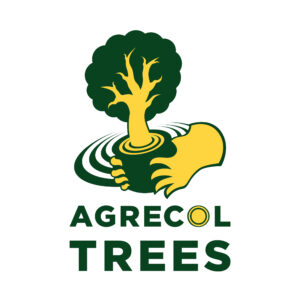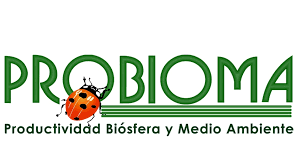Christian Zabala and
Dora Cruz Coronado
Santa Cruz de la Sierra (Bolivia). May 13, 2022
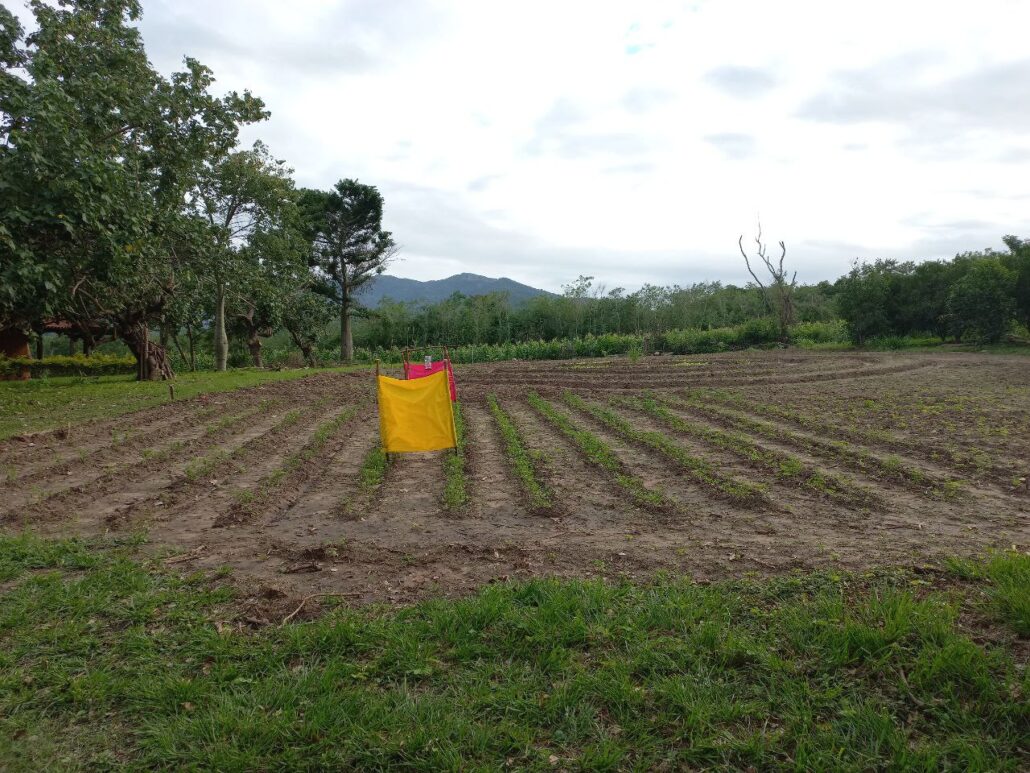
At the state of art, conventional farming based on agrochemicals and transgenic crops is provenly unsustainable and has a great impact on forests. Since the agricultural frontier must keep moving forward, forested areas are destroyed year after year through slash-and-burn practices and intentional and accidental forest fires. Reforesting areas burned by direct or indirect farming activities is meaningless without the consolidation of nature-friendly farming methods, such as agroecology, which respects forests, biodiversity, the soil, and water resources.
For these reasons, two agronomy students at the University of Santa Cruz de la Sierra chose agroecology for the mandatory traineeship. They opted for the agroecology training program of PROBIOMA–PROBIOTEC, GreenMarked’s business partner for the “Agrecol Trees – Chiquitanía” project, and among the biggest actors in agroecology and organic pest control in the department of Santa Cruz, Bolivia.
This interview recounts their first month experience in the traineeship program and their views on Bolivian agroecology.
Why did you decide to do your traineeship and write your thesis on agroecology and the ecological management of crops and fruit trees?
Christian: I’ve always been interested in organic products and always wanted to learn about agroecology and the ecological management of organic crops. PROBIOMA – PROBIOTEC has plenty years of experience in the field, and I think it will help me write an interesting thesis that can give a valid contribution [to the scientific community].
Dora: To complete my university curriculum, I am conducting a research study that evaluates how agroecological farming affects the agroeconomic factors and thus yield potential of potato cultivation (Solanum tuberosum). Additionally, it will analyze the impact of agroecological management on pests and diseases severity in order to promote agroecology as a mean to optimize potato farming (Figure 1). I chose PROBIOMA-PROBIOTEC to carry out this study because I was very eager to investigate on agroecological management, and to learn about organic production and pest control methods.
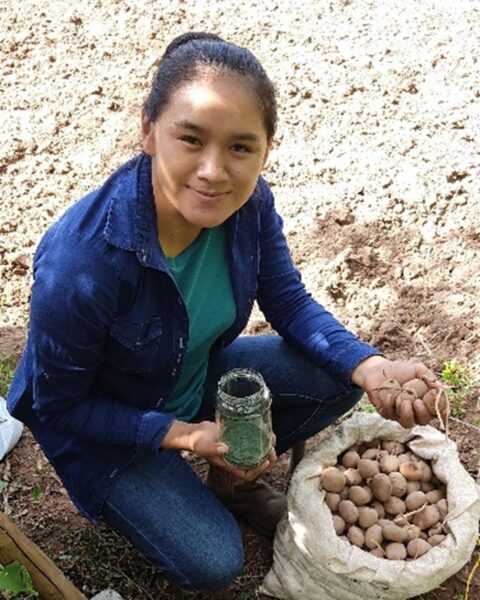
Fig. 1: Agronomy student Dora Cruz Coronado treating seed potatoes with TRICODAMP, a microorganism that protects potatoes from soil diseases (GreenMarked. San Luís – Santa Cruz de la Sierra, Bolivia. March 2022).
Why did you decide to do your traineeship and write your thesis on agroecology and the ecological management of crops and fruit trees?
Christian: Crops and fruit trees ecological pest management tries to avoid the damage caused by agrochemicals using organic products based on mineral broths, traps, pheromones or even microorganisms like entomopathogenic or microparasitic fungi, and beneficial bacteria. These more environmentally and soil friendly products are prepared and used at the PROBIOMA-PROBIOTEC site at San Luís – approximately 55 kilometers from Santa Cruz de la Sierra – under the names of “Probiobass”, “Tricodamp”, “Biosulfocal”, “Biofrut”, “Biogal” (Figure 2).
Dora: Agroecological farming is based on the ecological management of crops, fruit trees, fruit and forest trees seedlings. It aims to produce high quality food, restore farm and forest biodiversity, respect the natural environment and preserve soil fertility. One of its main strategies is to avoid soil deterioration through crop rotation and use organic fertilizers and plant protection products. At the PROBIOMA-PROBIOTEC production site, we learned to apply “Biogal”, an organic foliar fertilizer, “Biosulfocal”, an acaricide and fungicide that respects beneficial biodiversity, and Trichoderma spp., a mycoparasite that protects against fungal diseases. All these organic products are key for agroecological substrate preparation and seed treatment. They help making agriculture sustainable in the long term, contribute to biodiversity conservation and support true sustainable rural development.
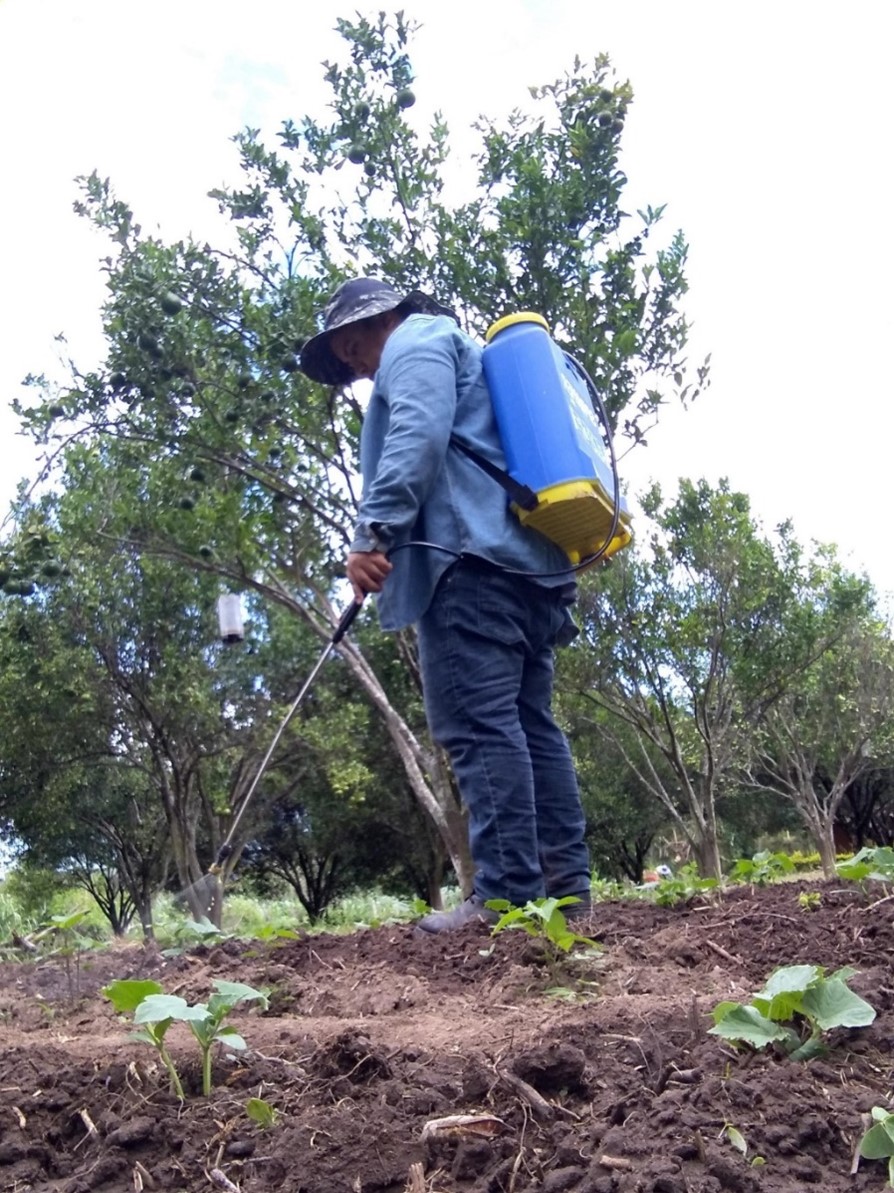
Fig. 2: Agronomy student Christian Zabala spraying organic product PROBIOBASS on vegetables to prevent insects damage (GreenMarked. San Luís – Santa Cruz de la Sierra, Bolivia. March 2022).
What did you learn in your first period of agroecological farming traineeship?
Christian: From my experience, these organic products have given excellent results. They have fulfilled their function of controlling pests without harming crops and they can be applied in every plant growing stage: from substrate preparation to harvest. Results were very positive in both horticultural fields and fruit tree orchards (Figure 3), and the organic products prevented and controlled both soil diseases and foliar pests.
Besides ecological pest control what else are you doing in your traineeship?
Christian: I am currently helping put up a plant nursery for fruit and native forest trees, whose seedlings will be transferred to fire-affected farming communities of the Chiquitanía region. To establish a new plant nursery, you must have proper shading conditions, fertilized soil for seedling growth, and sufficient water availability for irrigation. Additionally, you must know how to use organic products responsibly to prevent diseases and pests. All these elements guarantee a good production within the plant nursery. The new healthy, strong and disease-free plants will then be easily transferred to the Chiquitanía region and they will help restore the burned areas and improve the farming activities of local communities.
Dora: Apart from my research on agroecological management impacts, I am learning how to establish a plant nursery for the production of fruit and native forest seedlings. The plants will be transferred to the fire-affected communities of the Chiquitanía region, thus helping will help forest restoration and supporting local food security in the medium term.
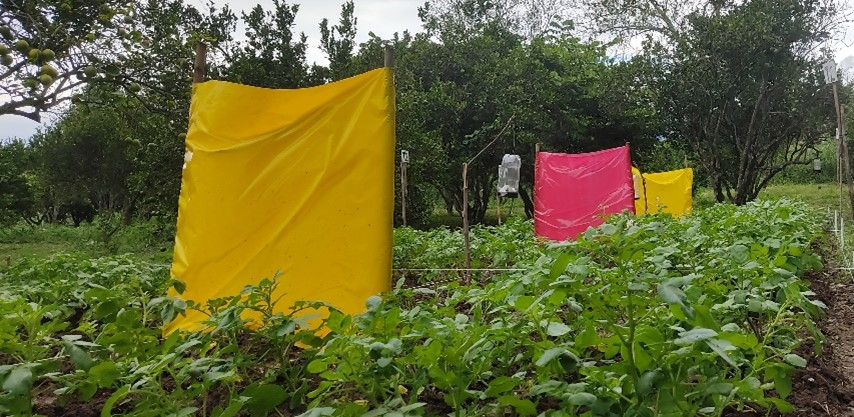
Fig. 3: The “Ethological traps” (colored) capture insects that determine plant diseases (GreenMarked. San Luís – Santa Cruz de la Sierra, Bolivia. March 2022).
So, all in all what do you think about your traineeship in agroecology?
Christian and Dora: It is giving us the foundation for our university thesis and qualifies us as professionals specialized in agroecology and ecological pest management. It is a great contribution to implementing forest-friendly sustainable agriculture.
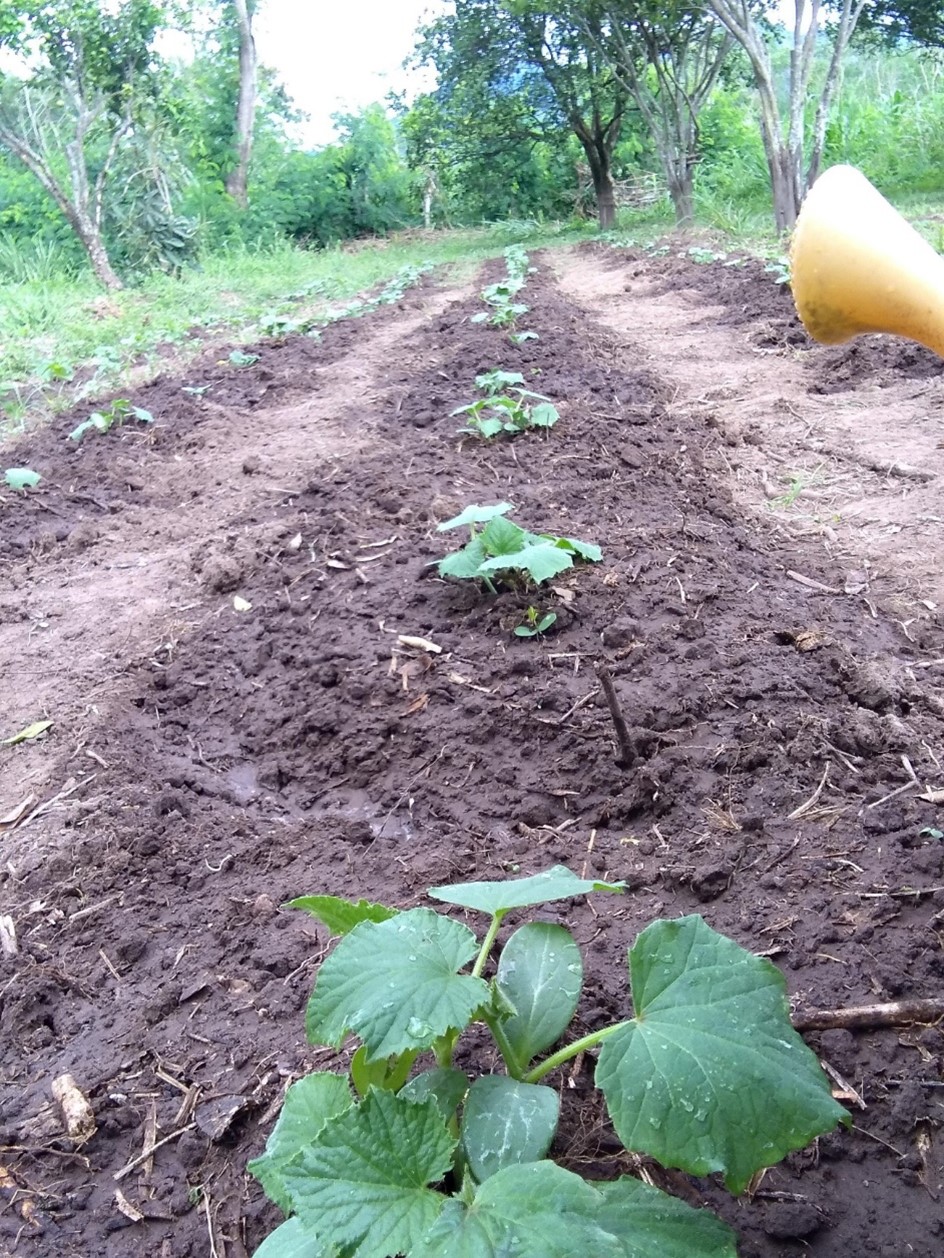
Fig. 4: Ecological cultivation of zucchini (GreenMarked. San Luís – Santa Cruz de la Sierra, Bolivia. March 2022).
Cover photo: Ecological cultivation of tomatoes (GreenMarked. San Luís – Santa Cruz de la Sierra, Bolivia. March 2022).
Preview photo: Agronomy student Dora Cruz Coronado treating seed potatoes with TRICODAMP, a microorganism that protects potatoes from soil diseases (GreenMarked. San Luís – Santa Cruz de la Sierra, Bolivia. March 2022).
This article was written for the “Agrecol Trees – Chiquitania” project, funded by GreenMarked and implemented by PROBIOMA-PROBIOTEC.
Edited by:
Daniela Romero Romay and Mark L. Miller


